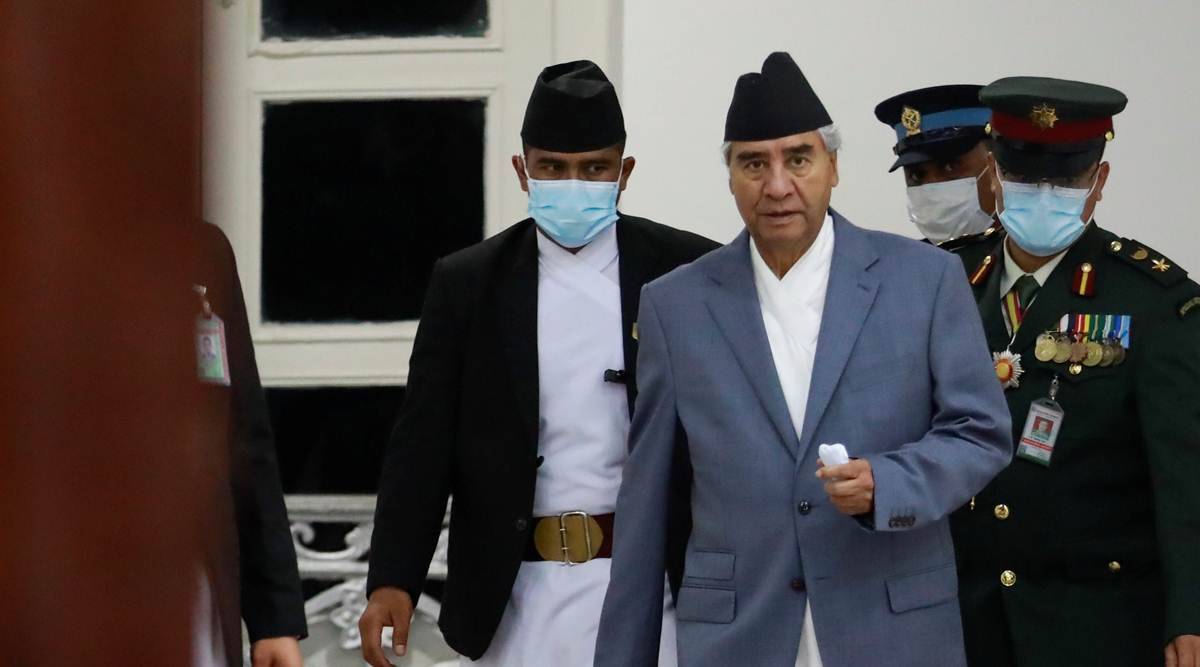Prime Minister Sher Bahadur Deuba is under immense pressure to announce local elections dates. On January 25, the Election Commission issued yet another statement, urging him to soon fix the dates.
Other Nepali Congress leaders, members of civil society, and media are warning him against paralyzing local governments by deferring polls. But then his key coalition partners want to postpone local elections from April/May to November. CPN (Maoist Center) and CPN (Unified Socialist) are of the view that elections should be held six months after the expiry of local bodies’ terms in May this year.
Says Nepali Congress Central Working Committee member Min Bishokarma, PM Deuba is making utmost effort to convince coalition partners to agree to April-May local elections. “As the prime minister is in favor of holding local elections by removing legal ambiguities, it is incorrect to imply that he wants to defer elections,” says Bishokarma.
The main opposition, CPN-UML, is in favor of timely elections. On January 23, UML came out with a strong statement against postponing elections under any pretext. But the best way for UML to ensure timely local elections, say Congress leaders, is to agree to reopen the parliament.
UML chief whip Bishal Bhattarai does not think the opposition has a substantive role in creating an environment for elections. “We are in favor of holding timely elections but some parties in government fear losing and want to postpone them,” he says.
Deuba fears that a unilateral decision on elections could split the coalition. Says Bishokarma, though Deuba is in favor of timely elections, he does not want to upset coalition partners either, which means Deuba won’t announce poll dates without consensus within the coalition.
There are also other issues on which there are divergent opinions inside the ruling coalition, affecting Deuba. For instance, he wants early parliamentary ratification of the MCC compact. But his coalition partners particularly CPN (Maoist Center) and CPN (Unified Socialist) oppose that. They say the MCC compact can be endorsed only after its amendment.
Also read: Local level facing an acute shortage of civil servants
Deuba also wants to avoid the possible communist re-unification or alliance ahead of the upcoming elections. He attributes the NC’s poor showing in 2017 elections to the left alliance formed on their eve. It would be easier for Nepali Congress to emerge as the largest party if communist parties continue to share bad blood.
To do so, he seems ready to share some seats with left parties, mainly in the constituencies of their top leaders and where NC’s position is weak. Deuba also feels politically and morally obliged to keep the coalition intact: he could not have become the prime minister without the support of the Maoists and Unified Socialist.
Despite his firm commitment to retaining the current coalition, Deuba is not fully optimistic about its longevity either. So, he is also mulling a Plan B.
A few weeks back, Deuba for the first time since becoming prime minister last July reached out to UML Chairman KP Oli and proposed power-sharing along with the endorsement of the MCC compact. But the meeting apparently didn’t serve the intended purpose.
PM Deuba is reaching out to opposition parties to create an environment for elections, says Bishokarma. “Deuba has told UML that lifting of parliament obstruction will pave the way for timely local elections.”
If the opposition removes the parliament obstruction thus clearing the legal challenges for local elections, the two sides could come together. “In the meeting with PM Oli, Deuba had requested UML join the government and help endorse the compact, he had also shared his difficulties with current coalition partners,” says Bhattarai.
Moreover, there is a strong sentiment in the NC that the party should rethink the coalition’s continuation. They fear the communist parties in the government are using the Congress party to create an electoral environment in their favor.
On January 24, the Shekhar Koirala faction of Nepali Congress concluded that one, elections must take place on time and two, that the party should not ally with communist parties. Says senior NC leader Jagadish Narasingh KC, the government is preparing to postpone elections without any discussions inside the party.
It would be suicidal to take vital decisions on local elections and amendment of laws without holding consultations inside the party, says KC. NC and PM Deuba apparently have little to gain but a lot to lose by deferring polls. On the other hand, the main opposition’s principal strategy at this point is engineering a split in the coalition to turn the electoral balance in its favor.
Even if there is an agreement in the ruling coalition on poll dates, its partners will start to bargain with Deuba on a small-scale electoral alliance. But, again, there are strong voices inside NC that the party should not strike any alliance with communist parties.
Deuba may be in a comfortable situation in and outside the party but national politics could lose way if there is a crack in the coalition. For instance, if the coalition splits and UML does not rescue him, Deuba could dissolve the Parliament.










